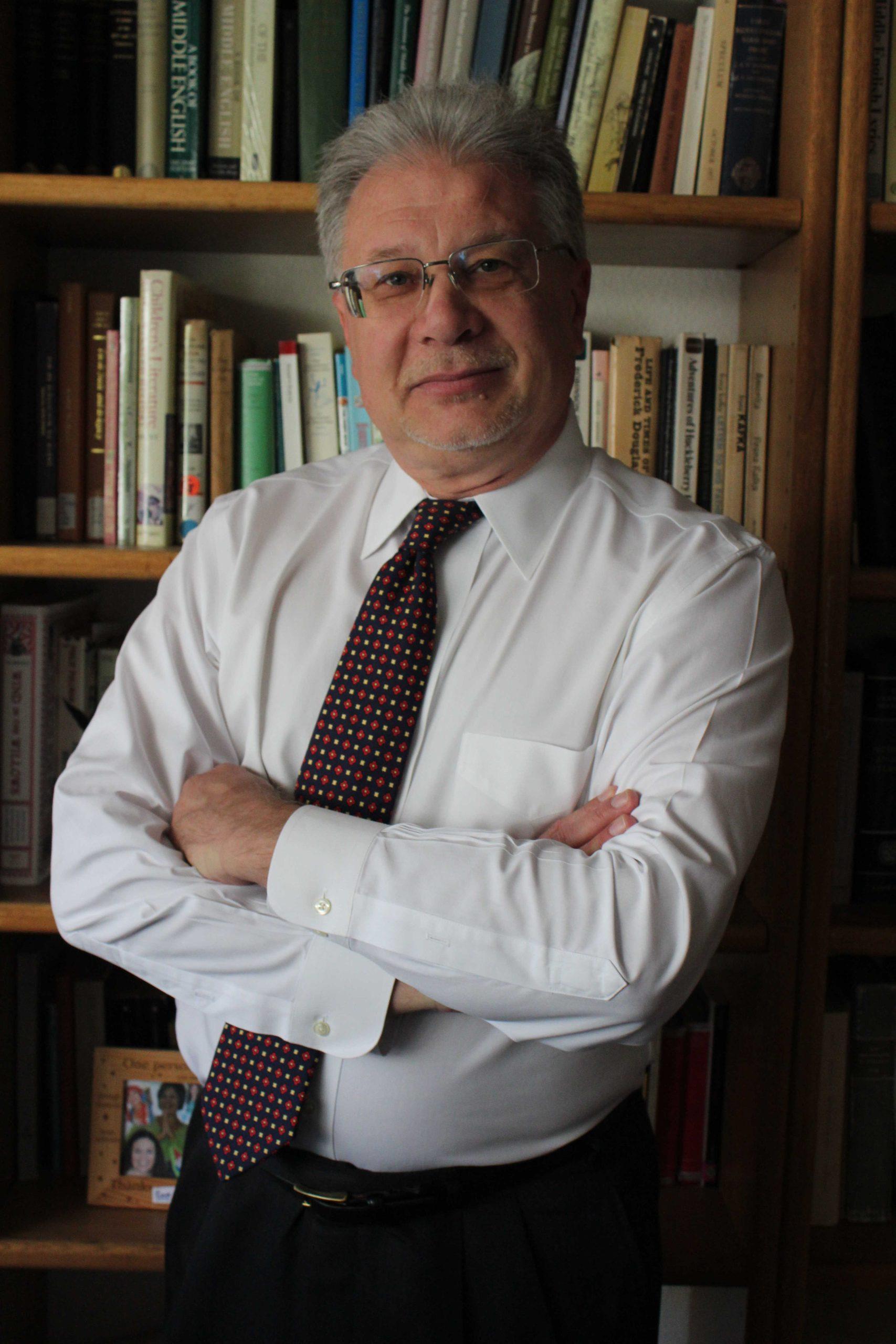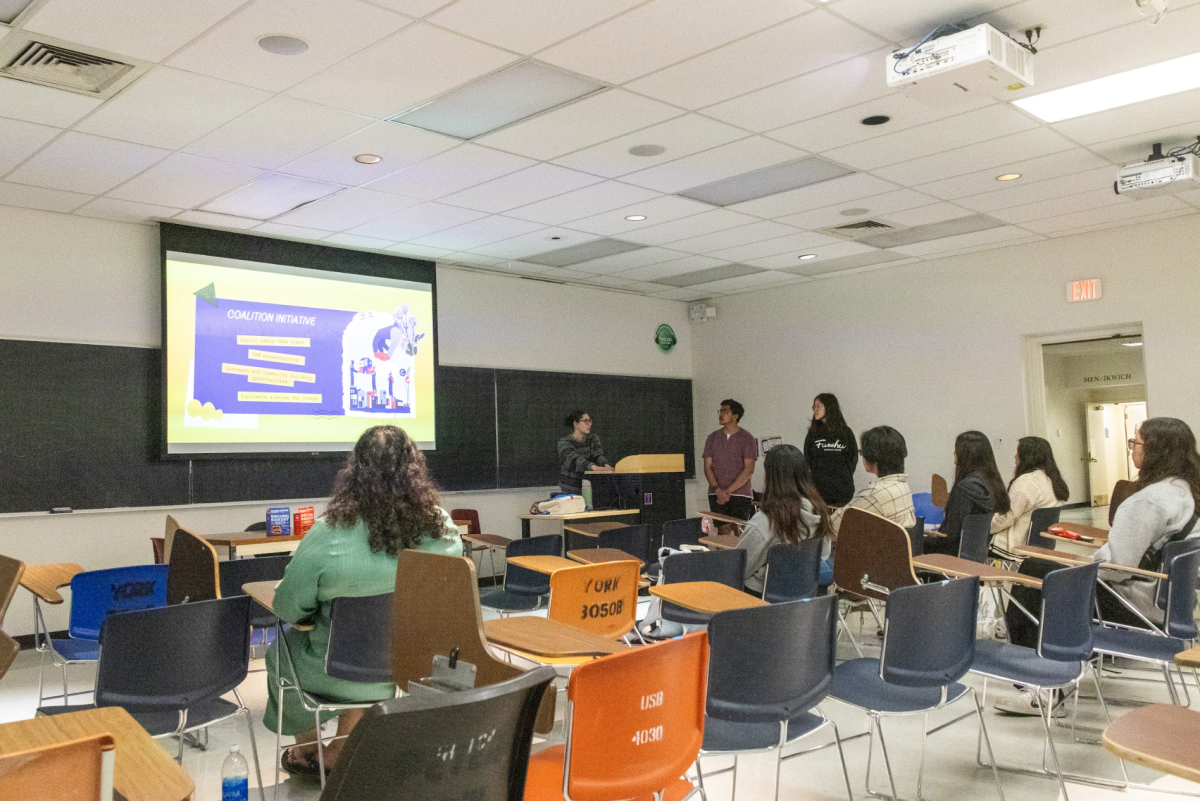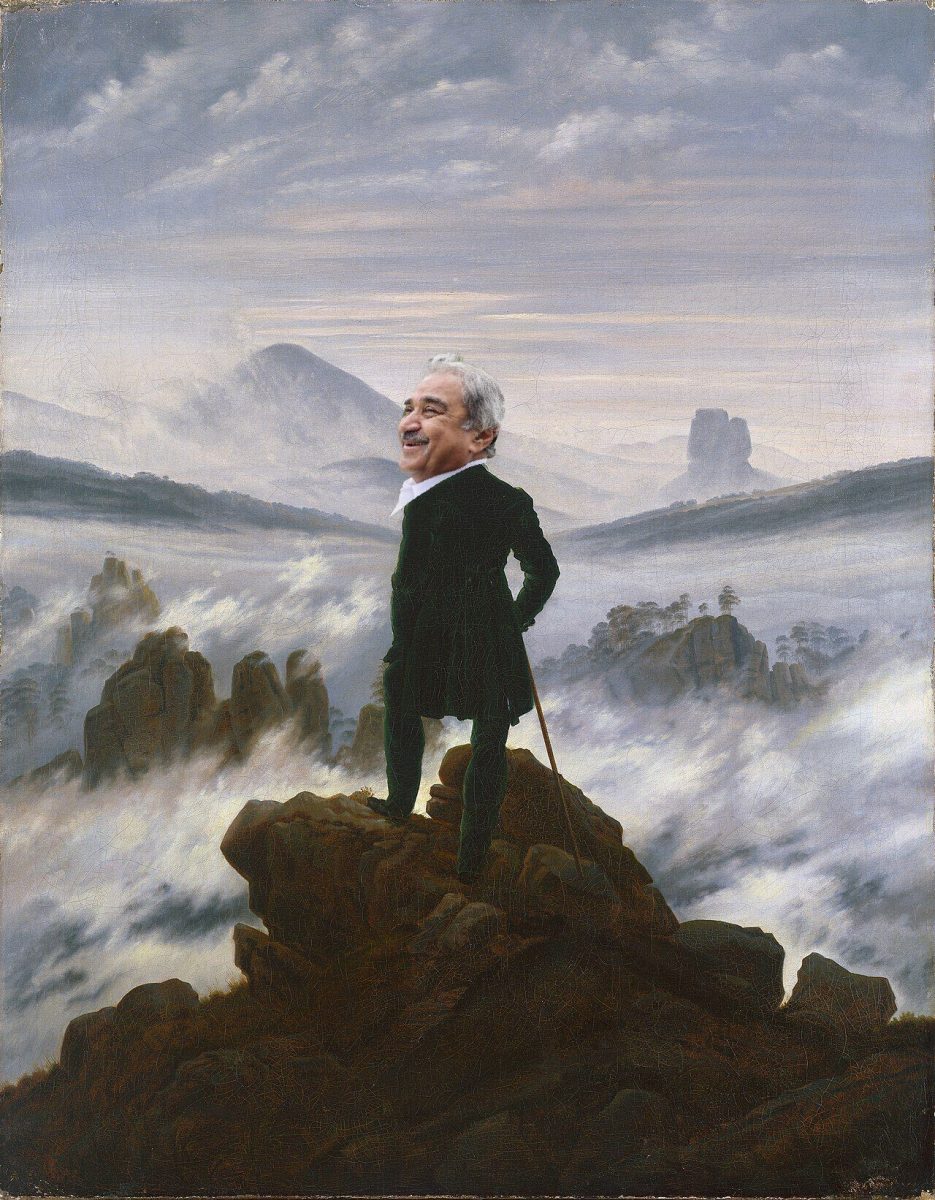Professor Seth Lerer not only holds two bachelor degrees, a masters degree, and a Ph.D. in English but also a respect for the evolution and change in language.

Professor Seth Lerer sat surrounded by books. It was a fitting backdrop for the Distinguished Professor of Literature, who joined UCSD’s faculty as an accomplished scholar of English language and literature in early 2009. The walls of his office were hidden behind bookshelves spanning from ceiling to floor, and the multi-colored spines of at least a thousand texts painted the room in a kaleidoscopic array of color. It was the space of a man who had dedicated the last 39 years of his life to the study of the written word — who had come to know the works of Chaucer and Shakespeare perhaps better than himself, and who, through literature, had gained a deep understanding of humanity.
His studies have sent him across most of the western hemisphere, obtaining a B.A. in English from Wesleyan University, a second B.A. in Medieval English and an M.A. in Historical Linguistics from the University of Oxford, and his Ph.D. in English from the University of Chicago. It wasn’t long after he earned his doctorate that Lerer began teaching at Princeton. But when he was given the opportunity to teach at Stanford in 1991, the intoxicating allure of fabled California took full effect, and Lerer headed westward.
While his education certainly reinforces his scholarly brilliance, to fully understand Seth Lerer is to look past his prestigious titles, awards and books, revealing the natural intellectual that lies behind his dapper suit and tie. Soon, Seth Lerer the New Yorker comes into focus: the one whose first literary experience came at the age of four years old after receiving his library card from the Brooklyn Public Library.
“[The book] was called ‘Adam’s Today and Tomorrow,’” Lerer told the UCSD Guardian. “It was about the future.”
He smiled nostalgically.
“It was like, and this was 1959, we are going to live in a world in which electricity will be too cheap to meter,” Lerer remembered, “In which everything will be clean and safe. In which America’s nuclear power will be a beacon of light to the rest of the world. I mean, I know it’s horseshit now, but that’s what we were taught!”
He was right. It really was horseshit. But in the late 1950s such portrayals of progress didn’t seem too far from the truth, and to four-year-old Lerer these hopeful images of a prosperous future were as feasible as they were wondrous. In the same way “Adam’s Today and Tomorrow” captured the perspective of Americans in 1959, each and every work of literature encapsulates the cultural environment of the time and place that they’re written.
“In that sense, literature is a lens,” Lerer explained. “It’s a way of magnifying. It’s a way of seeing.”
The transitory nature of perspective and language in literature seems a recurrent fixture of Lerer’s scholarly research. As an individual who religiously studies everything from the most archaic literary works to the latest contemporary tomes, he has observed the English language and the people who speak it change dramatically over the course of history. Like a spectator seated in the very last row of a playhouse, Lerer has seen how English literature has shifted and warped as cultural shifts enter and exit the stage.
One of his nine books, “Inventing English: A Portable History of the Language,” delves into these dynamic changes by exploring the different ways in which vocabulary, pronunciation and grammar have transformed commensurate to mankind. This constant evolution of literature and language, Lerer says, can create challenges for readers and speakers who aren’t able to adjust as quickly as language does.
“My view is that we are going to have strata,” Lerer said. “We are going to have [different] Englishes for different purposes, and there will be a real self-consciousness about this. Language of the school, language of the business, language of the home, language of the street. We see this in the history of the English language. We see the way in which people do this.”
Evidence to support Lerer’s idea of stratified Englishes is all around us. The Internet, for one, is in the process of cultivating its own language. Instead of interpreting these changes as disdainful devolutions of language, as many English scholars might, Lerer embraces them.
“There’s a creativity in the English of the Internet that can aspire to a certain kind of poetry,” Lerer said. “I really believe that.”
Unlike many traditional scholars, who would rather receive 100 lashes before putting the words Internet, English and poetry in the same sentence, Lerer believes that this is the natural evolution of English and to resist that would be foolish.
Still, when traversing the globe giving presentations on Old English, Middle English, classical literary texts and more, Lerer’s audiences frequently single out the “degradation” of the English language. The baby boomers and other members of the senior crowd look to Lerer to help them understand why younger generations don’t speak or write properly, like they learned to.
“People have been saying the English language is decaying for the last 500 years,” Lerer said with a serious countenance. “So, I want to look at the vibrancy and poetry that is going on.”
He may be astoundingly familiar with the eloquent English of the past, but Lerer isn’t one to look back. In fact, his extensive knowledge of history is what allows him to peer so confidently into the foggy future.
“It’s easier to say, ‘Why doesn’t anybody speak English anymore?’ than it is to stand up and say, ‘I’ve spent my whole life being important, and now I’m not important anymore,’ or, ‘My kids have moved out,’ or, ‘I’m on my own,’ or to ask the question, ‘Where am I in the world?’” Lerer said. “That’s a hard conversation to have. It’s easier to say, ‘Why is it that when I walk into the bank, these kids don’t know how to make change?’”
Rather than moping about the way English used to be, Lerer dedicates his time and energy to the study of where it is going. He is an educator who believes that to be progressive is to dive into the unknown, shedding conventionalities that have become obsolete before taking the leap. While his views on the future of literature and language may be considered “new wave,” Professor Lerer can still attest to the dastardly effects of time.
Last September, Lerer went back to Brooklyn, the heart of “hipster” NYC. Back in his hometown, in a restaurant within walking distance of his childhood home, he was confronted with this change face-to-face. His “20-something” server, Courtney, came to take his order.
“’Hey great, Courtney, you know I grew up a few blocks from here,’” Lerer said. She looked him up and down, a nicely dressed professor in his 60s, white hair and a suit, mentally rolling her eyes.
“Really? Really?” Lerer thought to himself. “Okay.”
Since leaving Brooklyn and pursuing his studies from England to California, it seems that his city and his language have moved on. But that’s to be expected. Through literature, language and insight, Professor Lerer teaches us all to welcome the ebb and flow of time and, to another extent, see the poetry in change.














